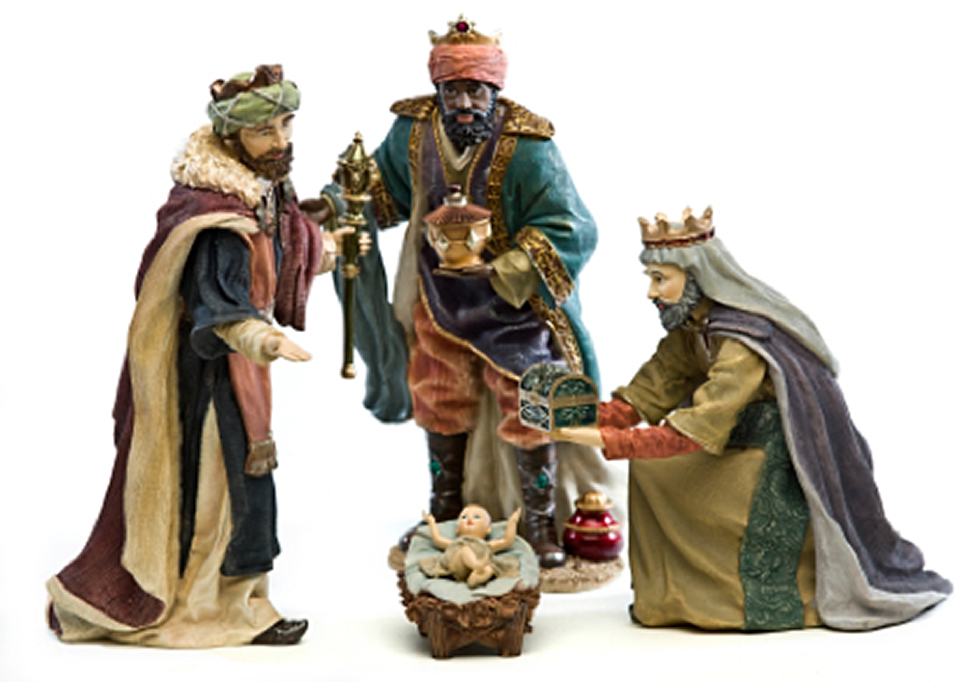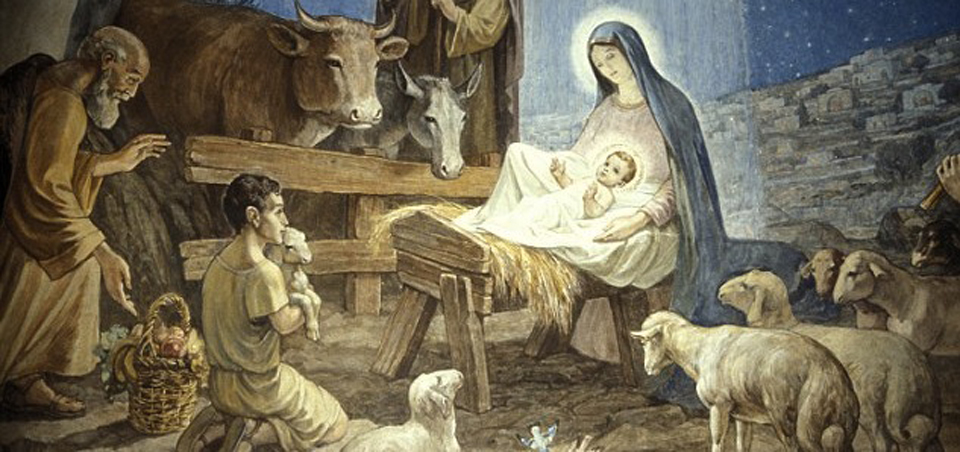
Volume 18, Issue 50 (December 11, 2016)
The Bible and “Christmas”
By Kyle Pope
The religious world has adopted the date of December 25th as a day of a memorial and celebration of the birth of Jesus Christ, giving it the name “Christmas.” Many churches set aside special services, rituals, and observances. Preachers claim from pulpits this day as the “day of Jesus’ birth.” And many people who seldom involve themselves in anything religious participate in such activities, counting themselves as having fulfilled their responsibility to worship the Lord.

Misconceptions about Jesus’ Birth
“Jesus was born on December 25th.” If you were to ask most people in the world “When was Jesus born?” After receiving a puzzled look, you would probably hear, “Well December 25th, of course!” In fact the Bible does not tell us a date upon which Jesus was born, and a little bit of calculation can show that it could not have been near that date at all. The gospel of Luke begins with the account of Zacharias being visited by an angel while he was serving in the temple. This angel announced to him that he would have a son who would grow to be the courageous prophet John the Baptist. Luke 1:5 tell us that Zacharias was of the priestly division of Abijah. During the time of king David the priests were separated into twenty-four divisions to determine who would serve in the temple at different times. The eighth division was that of Abijah (1 Chron. 24: 10). Each division appears to have served one week each which would give each division two times a year they would serve (2 Kings 11:7; 2 Chron. 23:8). Unlike our year the Hebrew year began in the spring with the month of Abib or Nisan (Exod. 12:2; Deut. 16:1). Based on this it can be determined that the times of service for the division of Abijah would be in approximately June and November. The visit of the angel to Zacharias was during his time of service in the temple (Luke 1:8,9) and his wife conceived after his time of service (Luke 1:23-25). The gospel of Luke tells us in chapter one verses 26 and 36 that when the angel came to Mary (Jesus’ mother) it was during the sixth month of the pregnancy of Elizabeth (the wife of Zacharias). That would place the time of Mary’s conception at either May or December. Nine months from May would place the date of Jesus’ birth sometime in February. Nine months from December would place it in September. So, there is no indication in Scripture that December 25th is even close to the date of Jesus’ birth.

“There were three wise men.” Regarding the wise men who came from the east to visit Jesus it is often asserted that there were three. Some have even expanded upon the biblical record to such a degree that they have given names to the three. This notion probably comes from the fact that the Bible tells us three gifts were brought to Jesus, yet nowhere are we told the number of Wise Men. It could have been three, two, or thirty-three. The text says simply, “Now after Jesus was born in Bethlehem of Judea in the days of Herod the king, behold, wise men from the East came to Jerusalem” (Matt. 2:1).
“The Wise Men visited Jesus while He was in the manger.” Millions upon millions of “nativity” scenes have been constructed portraying the wise men standing over the baby Jesus as he lies in the manger. The evidence in Scripture seems to be that the visit of the Wise Men came some time after Jesus’ birth and swaddling in the manger. To begin with the text says, “And when they had come into the HOUSE, they saw the young Child with Mary His mother, and fell down and worshiped Him...” (Matt. 2:11, emphasis mine). Notice the scene of their adoration of Christ was not in a place where one would find a manger but rather in a “house.” Further, Matthew 2:7 tells us that Herod asked the Wise Men when the star appeared in order that he might determine when the child was born. Apparently based upon this answer he determined to have all male children under the age of two put to death (Matt. 2:16). It may be that Jesus was as much as two years old by this time of their visit.
“The Shepherds brought gifts.” In addition to confusion over the Wise Men it is also suggested that the shepherds who were in the fields brought gifts to Jesus. Of the shepherds the text tells us, “So it was when the angels had gone away from them into heaven, that the shepherds said to one another, ‘Let us now go to Bethlehem and see this thing that has come to pass, which the Lord has made known to us.’ And they came with haste and found Mary and Joseph, and the Babe lying in a manger. And when they had seen Him, they made widely known the saying which was told them concerning this Child” (Luke 2:15- 17). Unlike the Wise Men the shepherds had not been seeking Jesus. When they were told about Him they went to investigate, not to worship Him.

“The animals around the manger spoke.” Some of the children’s stories told about the birth of Jesus have added (with no Scriptural authority whatsoever) the notion that the animals around the manger miraculously spoke. While the Bible does teach that Jesus was laid in a manger (Luke 2:7, 12 & 16) there is no reference to animals at all! A manger was a trough in which animals were fed. Thus it may very well have been that they were in some type of stable in which there were farm animals. However, to suggest that animals spoke at Jesus’ birth is to ascribe a miracle where none has been recorded by the Holy Spirit.
“The Bible teaches Christians to celebrate ‘Christmas.’” Many in the religious world who consider themselves very religious people do so based upon two things: they attend a church service somewhere on Christmas and Easter. Most likely they would tell you that they are doing so “because the Bible says to!” In fact, the Bible says nothing about observing any type of memorial of the birth of Jesus. That is not to say that Christians should not appreciate and remember Christ’s entrance into the world as well as all aspects of His life. Yet, we should do so at all times, remembering not only His birth but His life, death, teachings, and resurrection.
What is ironic is that while the religious world has added a religious day of memorial where none was commanded, they have almost wholeheartedly neglected that which is commanded and authorized. In Matthew 26:26-30, Mark 14:22-26, Luke 22:14-23, and 1 Corinthians 11:23-26 Christians are commanded to observe the Lord’s Supper. The approved apostolic example of when early Christians did so was upon the first day of the week (Acts 20:7; 1 Cor. 11:20, 16:1, 2; Rev. 1:10). To follow this example is to act within the authority of Scripture. For a church to attribute to December 25th a special sanctity is to act without Scriptural authority.

